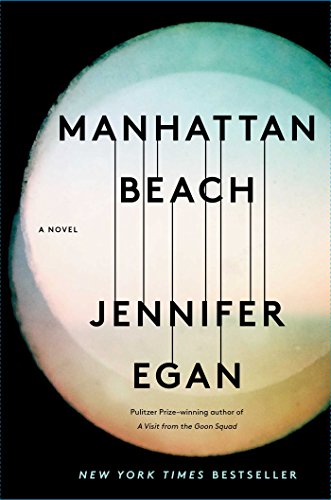We spend plenty of time here on The Millions telling all of you what we’ve been reading, but we are also quite interested in hearing about what you’ve been reading. By looking at our Amazon stats, we can see what books Millions readers have been buying, and we decided it would be fun to use those stats to find out what books have been most popular with our readers in recent months. Below you’ll find our Millions Top Ten list for November.
| This Month | Last Month | Title | On List | |
| 1. | 1. |  |
Manhattan Beach | 2 months |
| 2. | 5. |  |
The Changeling | 4 months |
| 3. | 2. |  |
Exit West | 5 months |
| 4. | – |  |
Don’t Save Anything: Uncollected Essays, Articles, and Profiles | 1 month |
| 5. | 4. |  |
The Seventh Function of Language: A Novel | 4 months |
| 6. | 9. |  |
Little Fires Everywhere |
2 months |
| 7. | 6. |  |
Forest Dark | 3 months |
| 8. | – |  |
Draft No. 4: On the Writing Process |
1 month |
| 9. | – |  |
The Book of Dust: La Belle Sauvage |
1 month |
| 10. | 8. |  |
My Absolute Darling |
3 months |
Haruki Murakami’s short story collection Men Without Women is off to our Hall of Fame this month. It’s the author’s third title to achieve that feat, so add “Millions readers” to the list of things closely associated with Murakami’s works. (That list also includes spaghetti, cats, The Beatles, and long distance running.) Meanwhile, two titles from last month’s Top Ten list dropped out in November: Autumn by Ali Smith and What We Lose by Zinzi Clemmons.
Filling the three open spaces are works by James Salter, John McPhee, and Philip Pullman. Perhaps you’ve heard of them?
Ninth place this month belongs to Philip Pullman’s La Belle Sauvage, the first installment in the author’s new Book of Dust trilogy – itself a quasi-prequel/-sequel (it’s been called, flatly, an “equel”) to the author’s His Dark Materials trilogy. In his review for our site, Charles-Adam Foster-Simard wrote that Pullman’s latest novel is “more mature” than his earlier trilogy “because it explores psychological darkness.”
There are whispers of pedophilia and sex crimes at the fringes of the story, which heightens the sense of danger, and underscores the theme of innocence and experience, which plays an essential role in Pullman’s books.
Checking in one spot up the list in the eight spot is John McPhee’s Draft No. 4: On the Writing Process., which our own Iľja Rákoš described as “a primer in the how, the why, the who, and the humor of getting at the story without sacrificing the art.” It’s also, as Stephen Phillips argues in his review for our site, “a capsule of the charmed status of an elite practitioner during what looks today like a golden era of magazine journalism replete with extended parlays with editors, protracted fact-checking triangulation, and two weeks on a picnic table.”
And speaking of the “golden era” of publishing, James Salter’s Don’t Save Anything holds the fourth spot on this month’s list. The book collects, according to Nick Ripatrazone, “Salter’s previously uncollected non-fiction; essays that appeared in The New Yorker, Esquire, People, and elsewhere. The book’s title comes from a line from one of Salter’s final interviews: ‘You try to put everything you have in a book. That is, don’t save anything for the next one.'”
Next month our list will no doubt be reshaped by our Year in Reading series, which is currently ongoing, and which reliably reorders everyone’s “to read” lists every winter.
This month’s other near misses included: The Idiot, Sing, Unburied, Sing, and The Stories of Breece D’J Pancake. See Also: Last month’s list.









